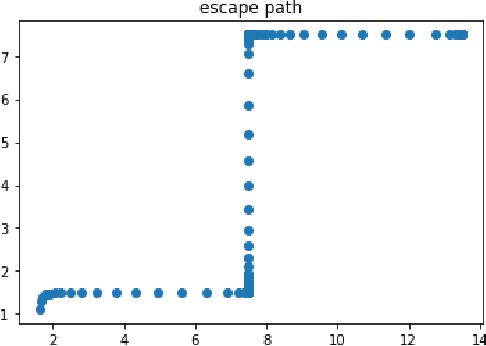A Realistic Example in 2 Dimension that Gradient Descent Takes Exponential Time to Escape Saddle Points
Paper and Code
Aug 17, 2020

Gradient descent is a popular algorithm in optimization, and its performance in convex settings is mostly well understood. In non-convex settings, it has been shown that gradient descent is able to escape saddle points asymptotically and converge to local minimizers [Lee et. al. 2016]. Recent studies also show a perturbed version of gradient descent is enough to escape saddle points efficiently [Jin et. al. 2015, Ge et. al. 2017]. In this paper we show a negative result: gradient descent may take exponential time to escape saddle points, with non-pathological two dimensional functions. While our focus is theoretical, we also conduct experiments verifying our theoretical result. Through our analysis we demonstrate that stochasticity is essential to escape saddle points efficiently.
 Add to Chrome
Add to Chrome Add to Firefox
Add to Firefox Add to Edge
Add to Edge